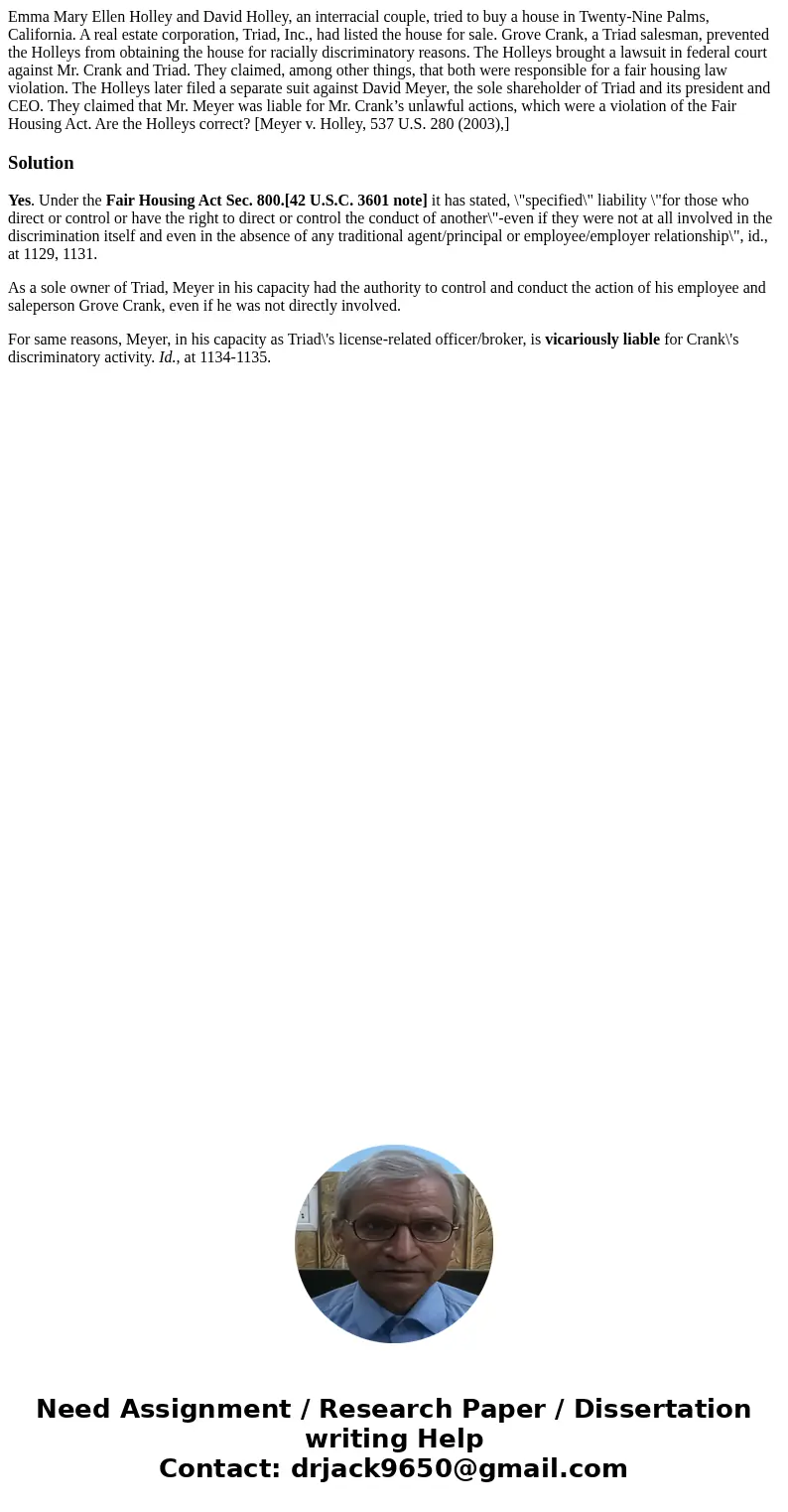Emma Mary Ellen Holley and David Holley an interracial coupl
Emma Mary Ellen Holley and David Holley, an interracial couple, tried to buy a house in Twenty-Nine Palms, California. A real estate corporation, Triad, Inc., had listed the house for sale. Grove Crank, a Triad salesman, prevented the Holleys from obtaining the house for racially discriminatory reasons. The Holleys brought a lawsuit in federal court against Mr. Crank and Triad. They claimed, among other things, that both were responsible for a fair housing law violation. The Holleys later filed a separate suit against David Meyer, the sole shareholder of Triad and its president and CEO. They claimed that Mr. Meyer was liable for Mr. Crank’s unlawful actions, which were a violation of the Fair Housing Act. Are the Holleys correct? [Meyer v. Holley, 537 U.S. 280 (2003),]
Solution
Yes. Under the Fair Housing Act Sec. 800.[42 U.S.C. 3601 note] it has stated, \"specified\" liability \"for those who direct or control or have the right to direct or control the conduct of another\"-even if they were not at all involved in the discrimination itself and even in the absence of any traditional agent/principal or employee/employer relationship\", id., at 1129, 1131.
As a sole owner of Triad, Meyer in his capacity had the authority to control and conduct the action of his employee and saleperson Grove Crank, even if he was not directly involved.
For same reasons, Meyer, in his capacity as Triad\'s license-related officer/broker, is vicariously liable for Crank\'s discriminatory activity. Id., at 1134-1135.

 Homework Sourse
Homework Sourse